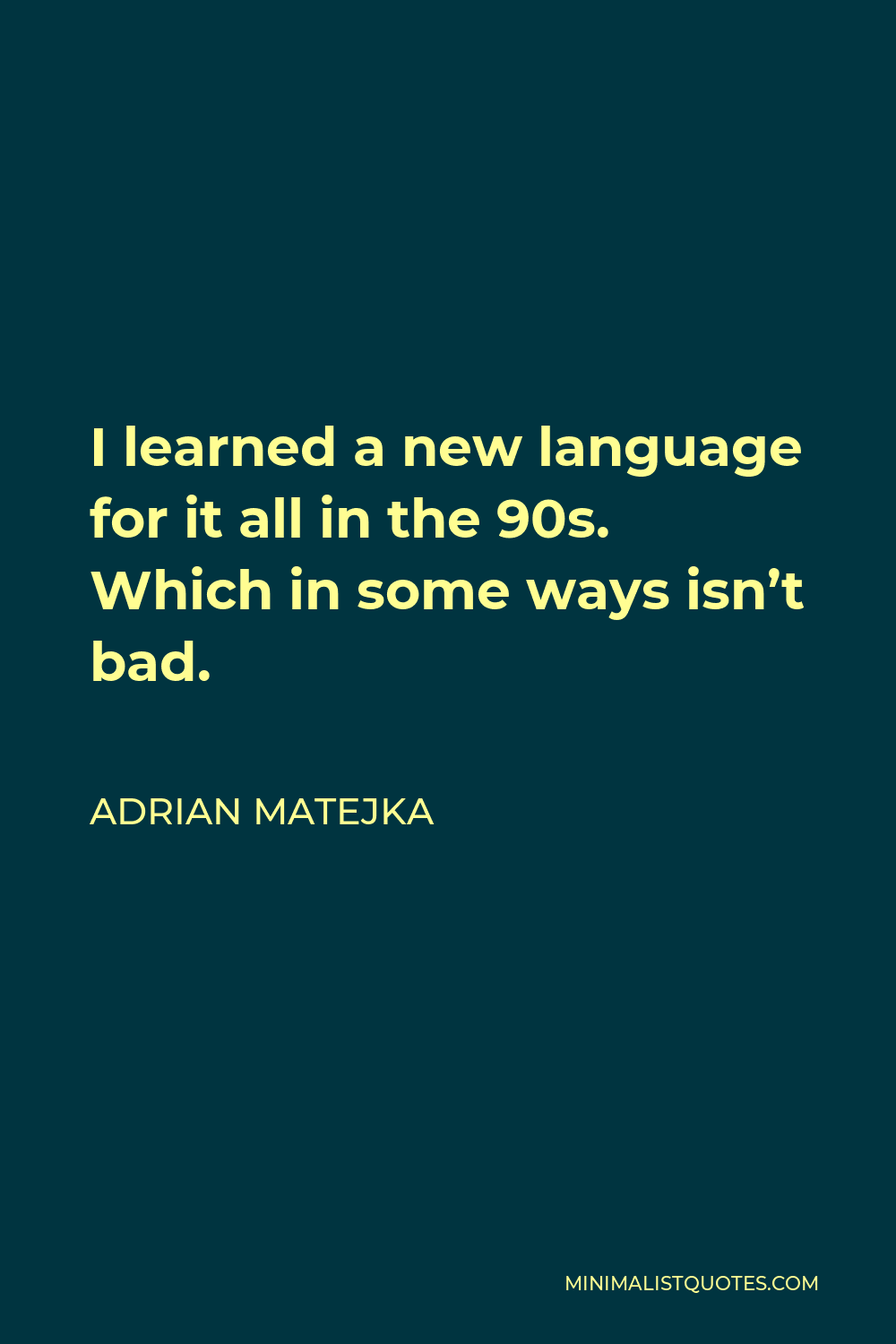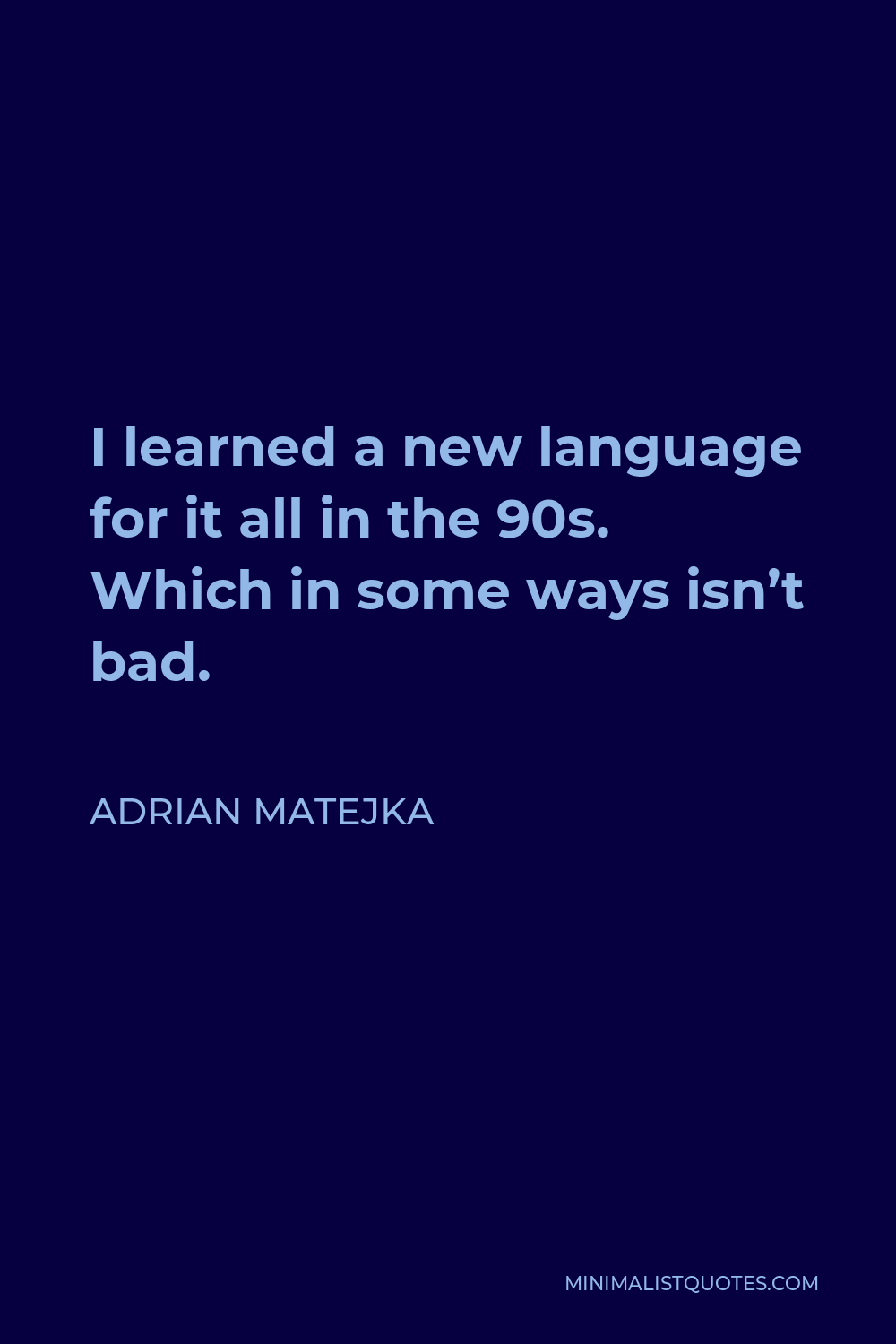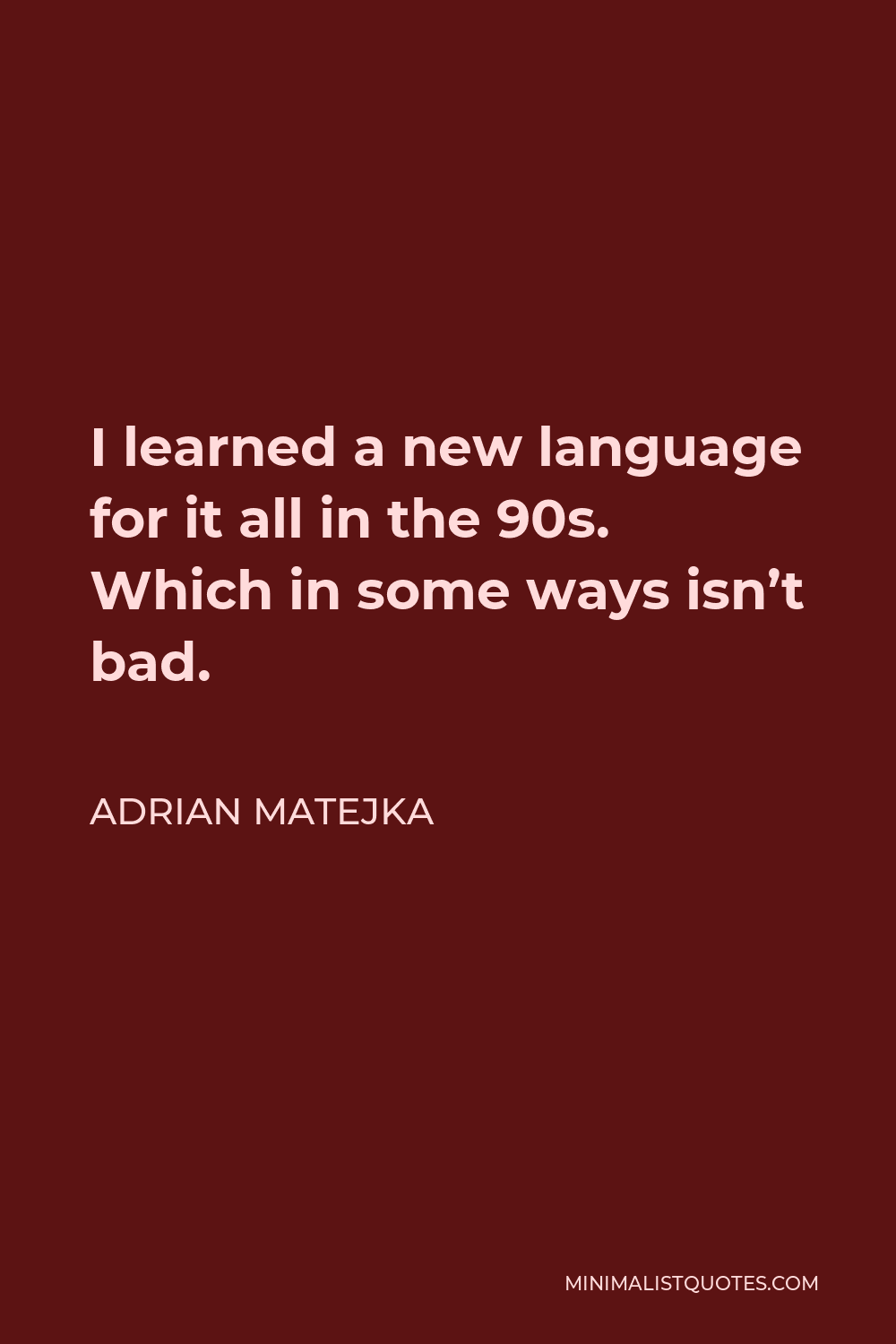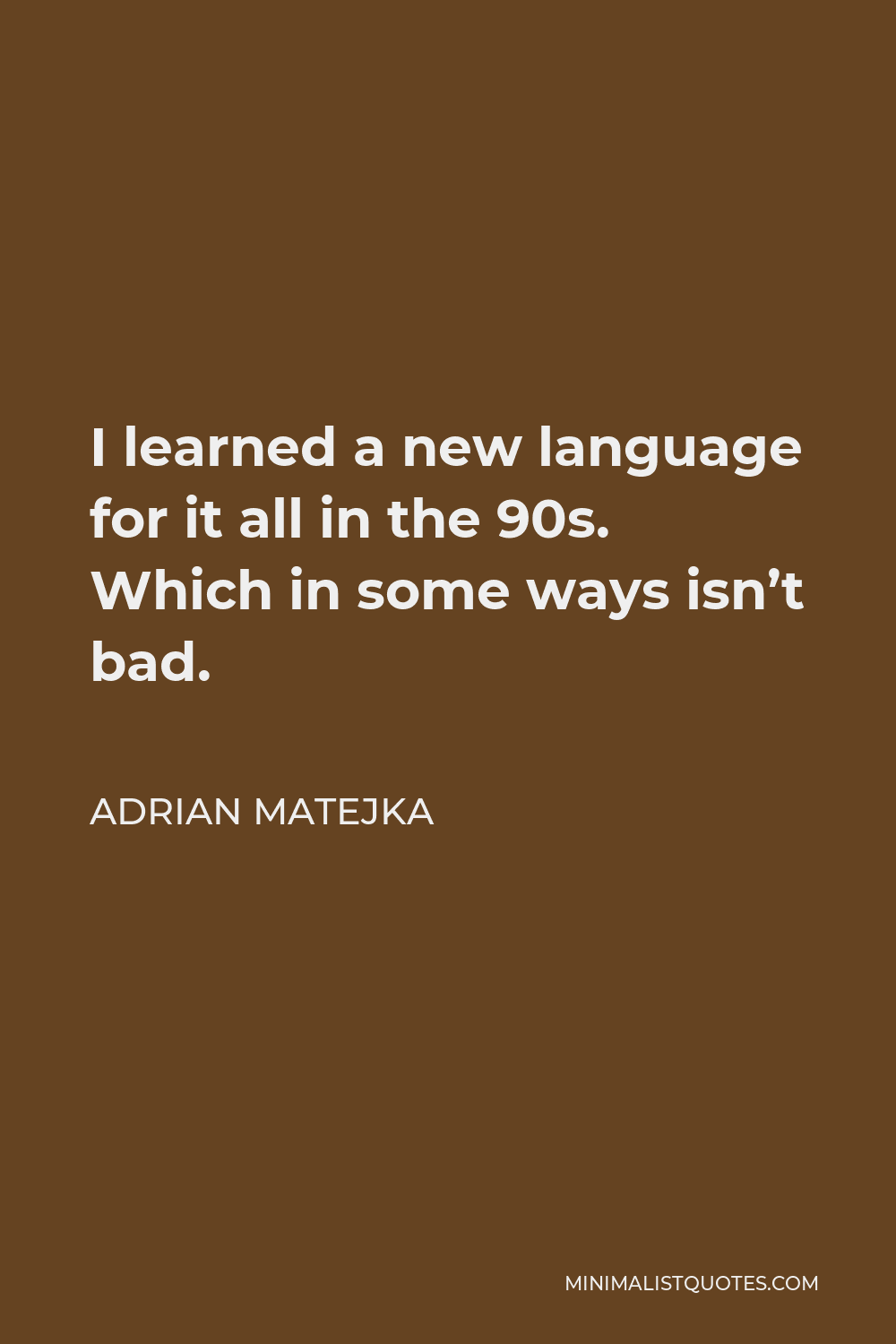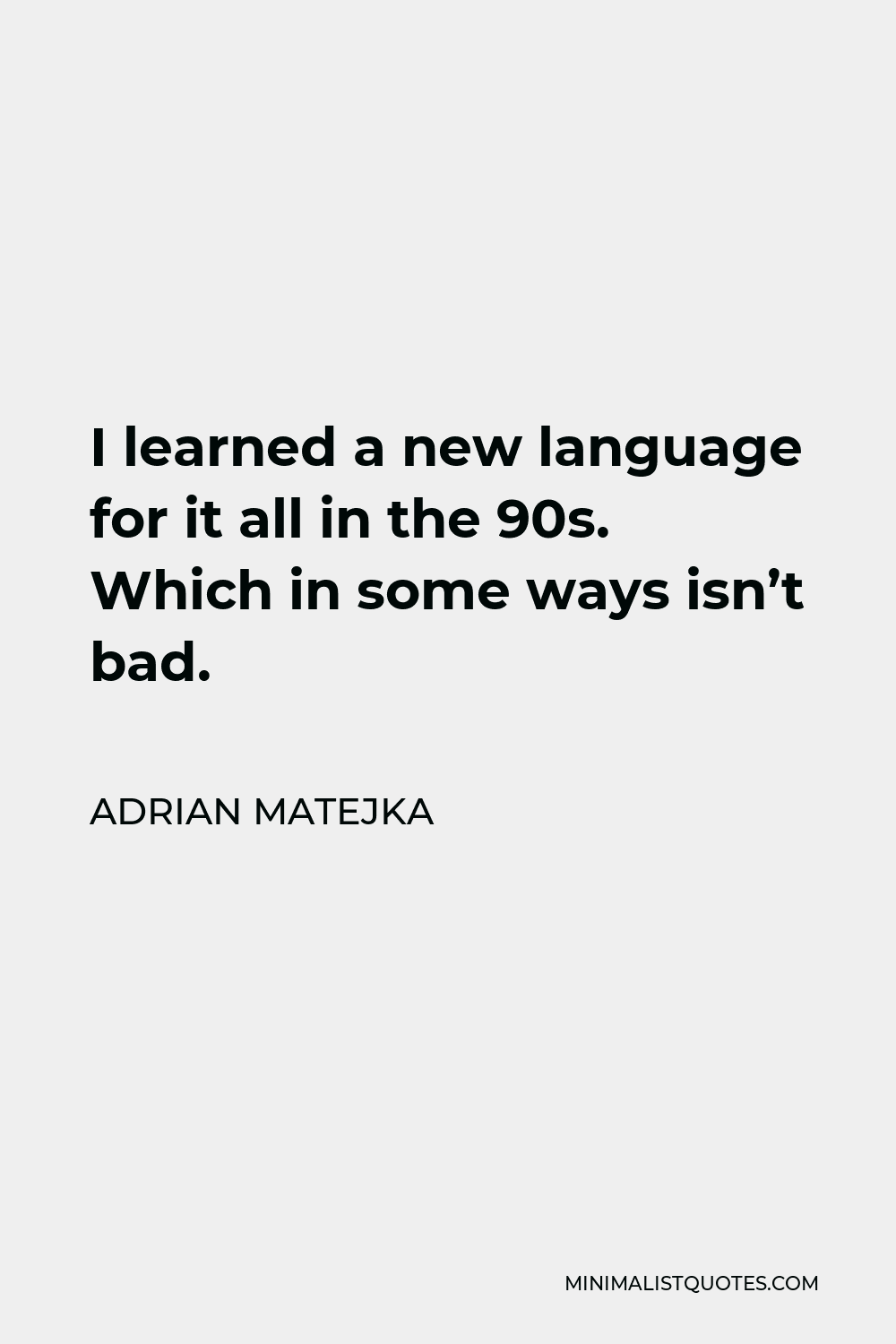It will alter the way you hear poetry forever. And not in a good way.
ADRIAN MATEJKAI learned a new language for it all in the 90s. Which in some ways isn’t bad.
More Adrian Matejka Quotes
-





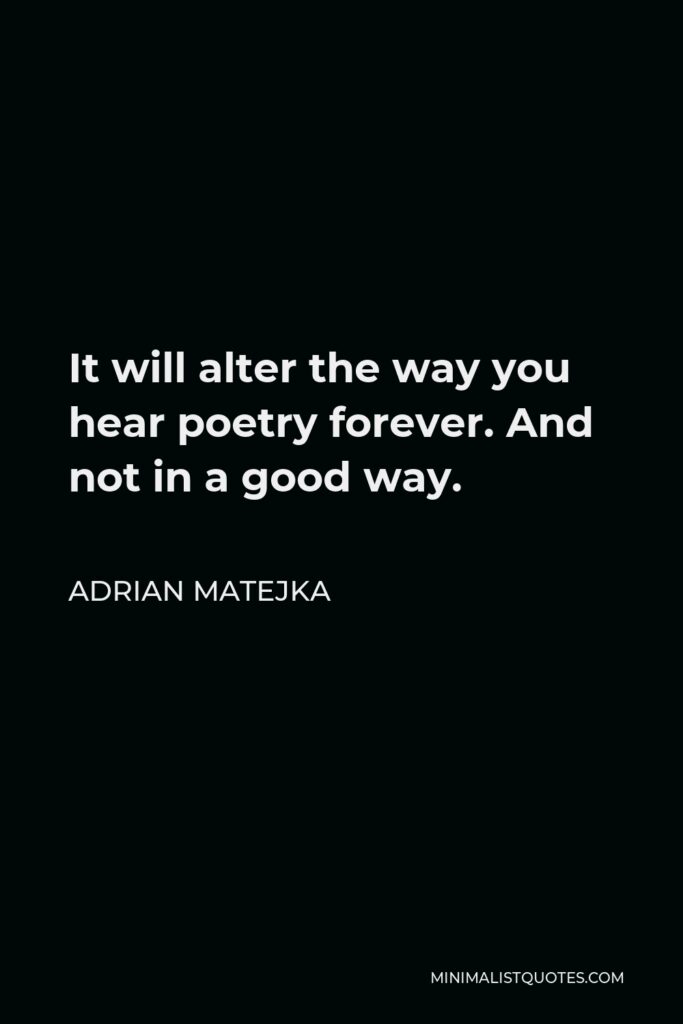

-





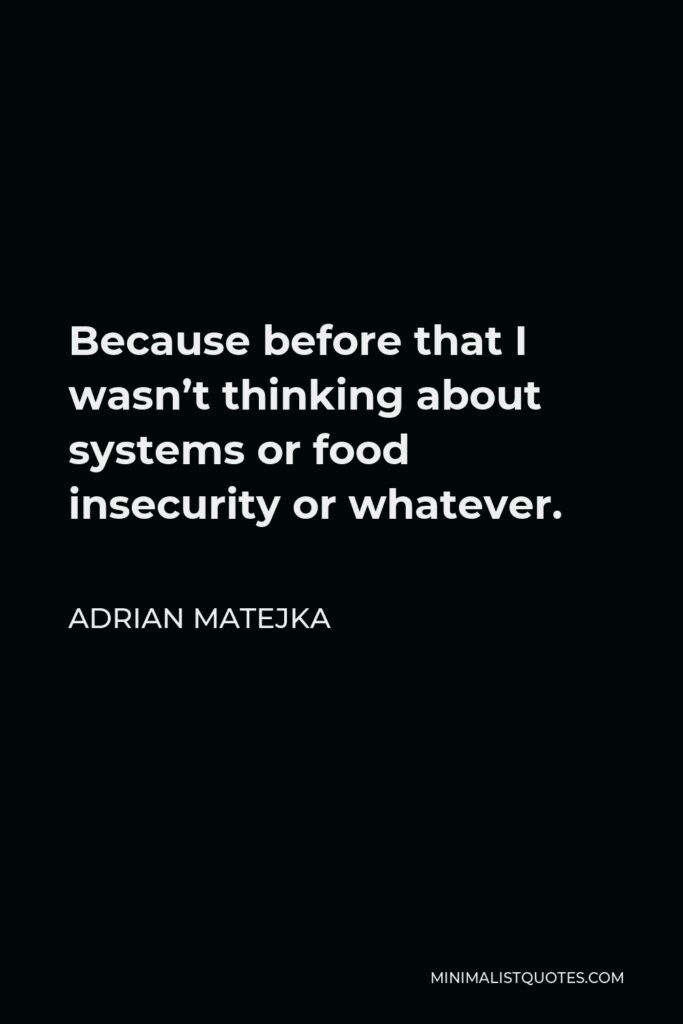

Because before that I wasn’t thinking about systems or food insecurity or whatever.
ADRIAN MATEJKA -





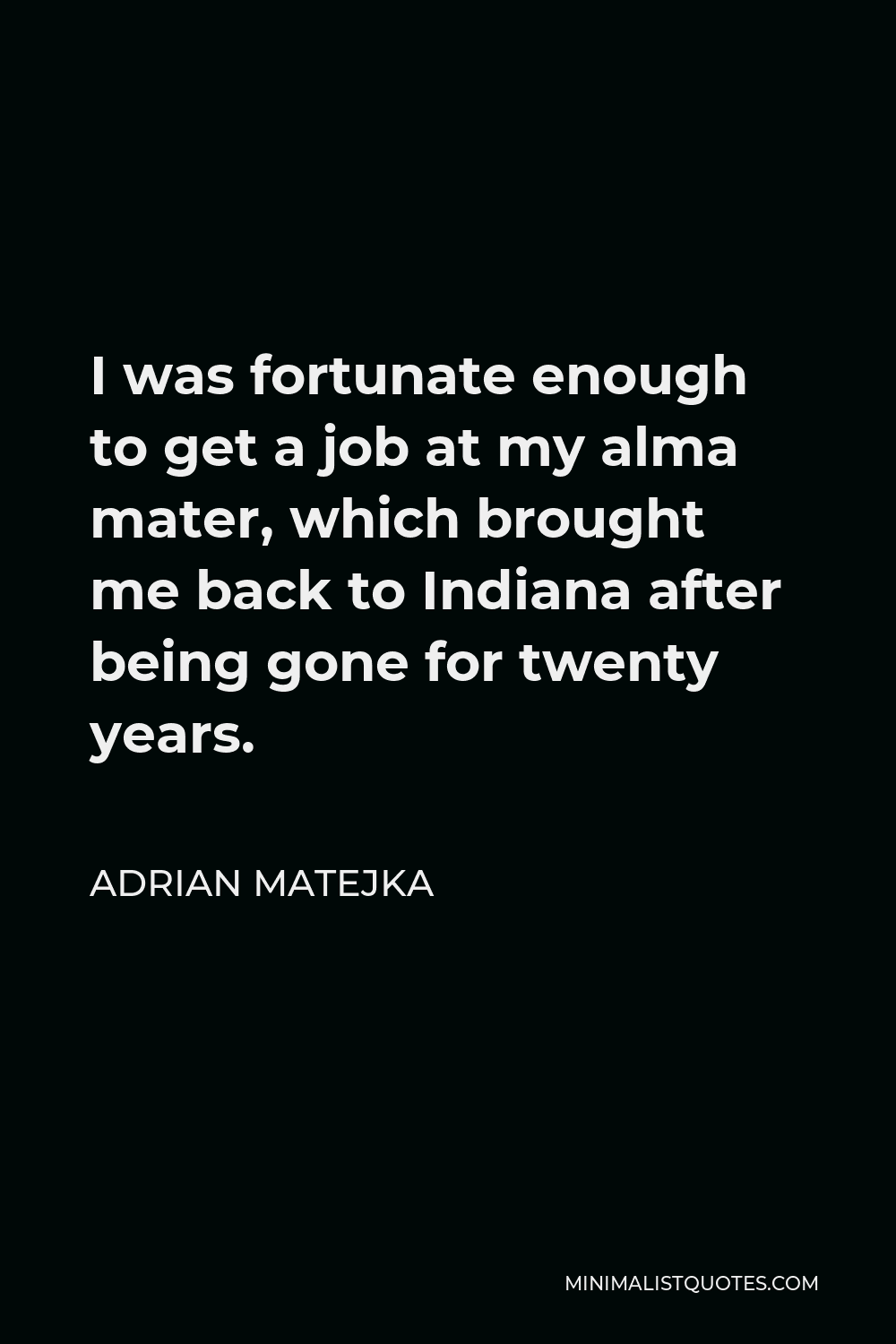
I was fortunate enough to get a job at my alma mater, which brought me back to Indiana after being gone for twenty years.
ADRIAN MATEJKA -





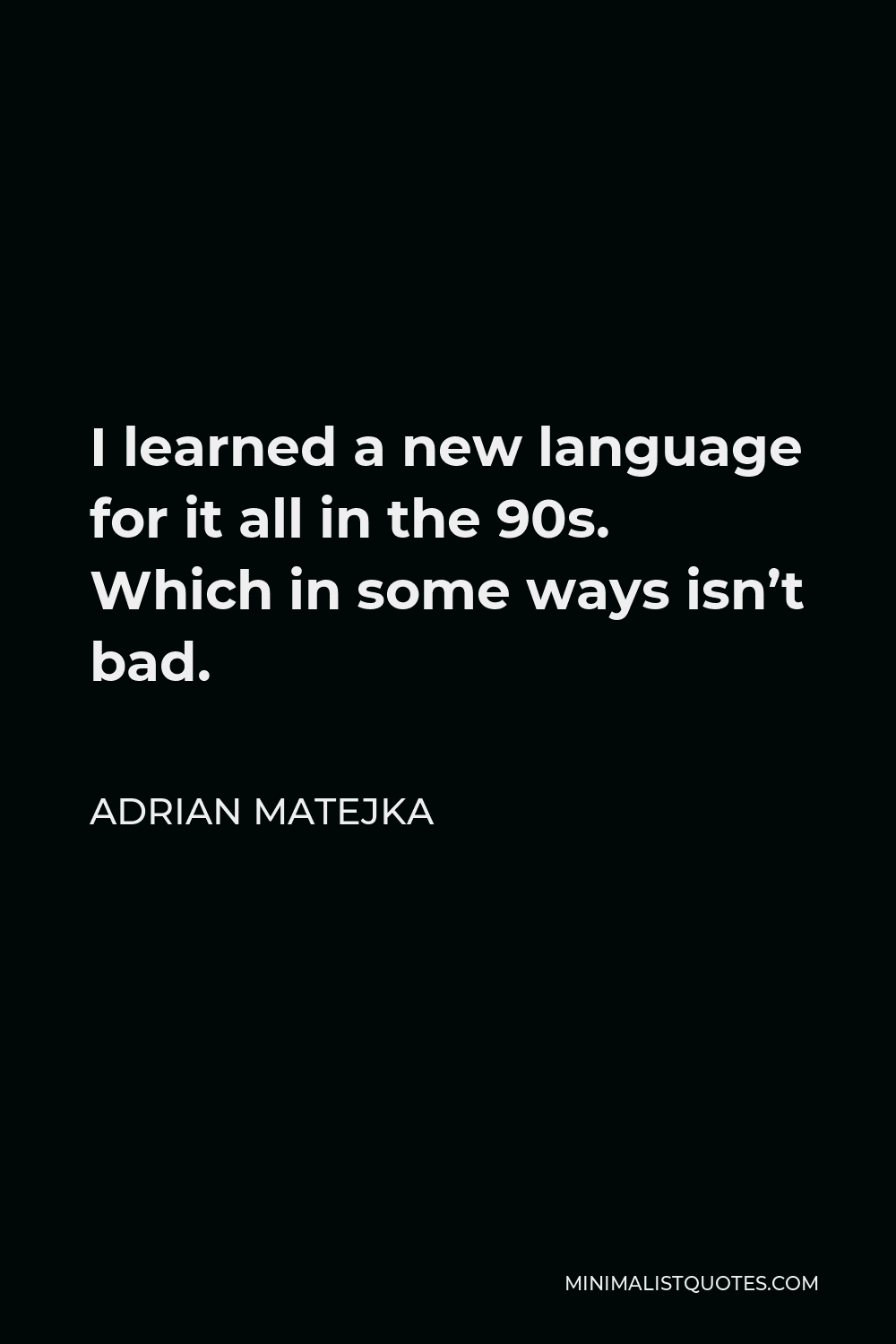
I learned a new language for it all in the 90s. Which in some ways isn’t bad.
ADRIAN MATEJKA -





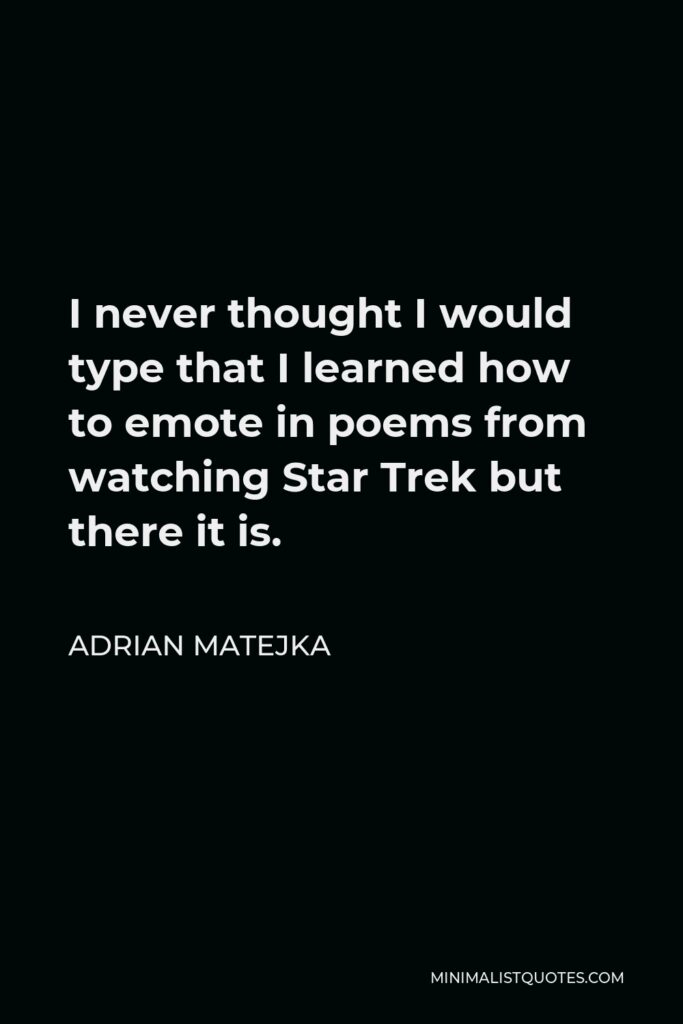

I never thought I would type that I learned how to emote in poems from watching Star Trek but there it is.
ADRIAN MATEJKA -





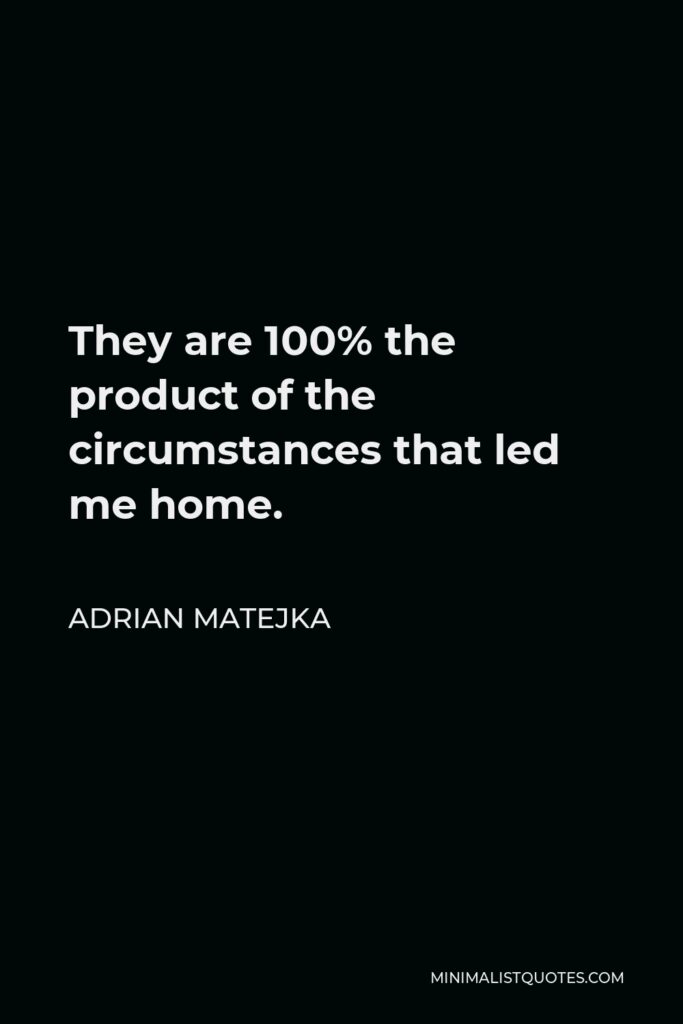

They are 100% the product of the circumstances that led me home.
ADRIAN MATEJKA -





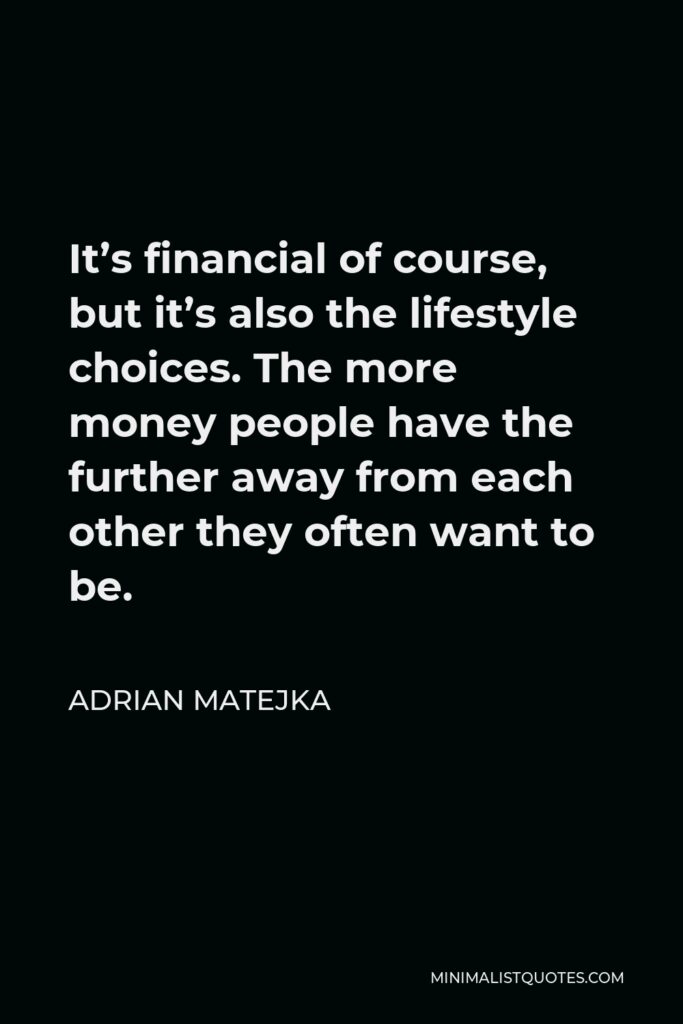

It’s financial of course, but it’s also the lifestyle choices. The more money people have the further away from each other they often want to be.
ADRIAN MATEJKA -





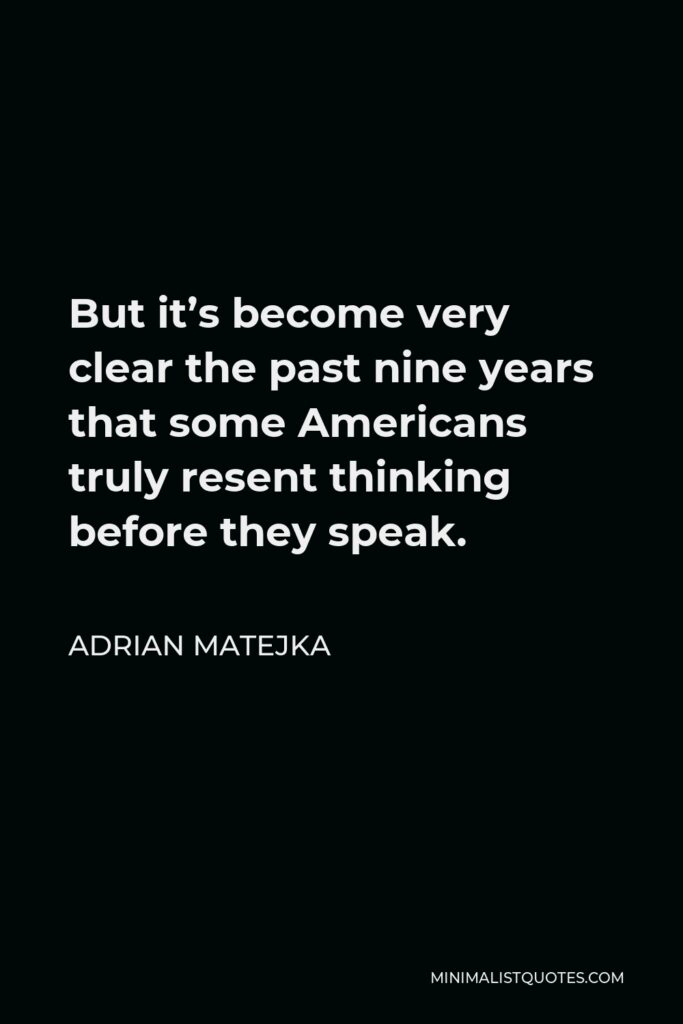

But it’s become very clear the past nine years that some Americans truly resent thinking before they speak.
ADRIAN MATEJKA -





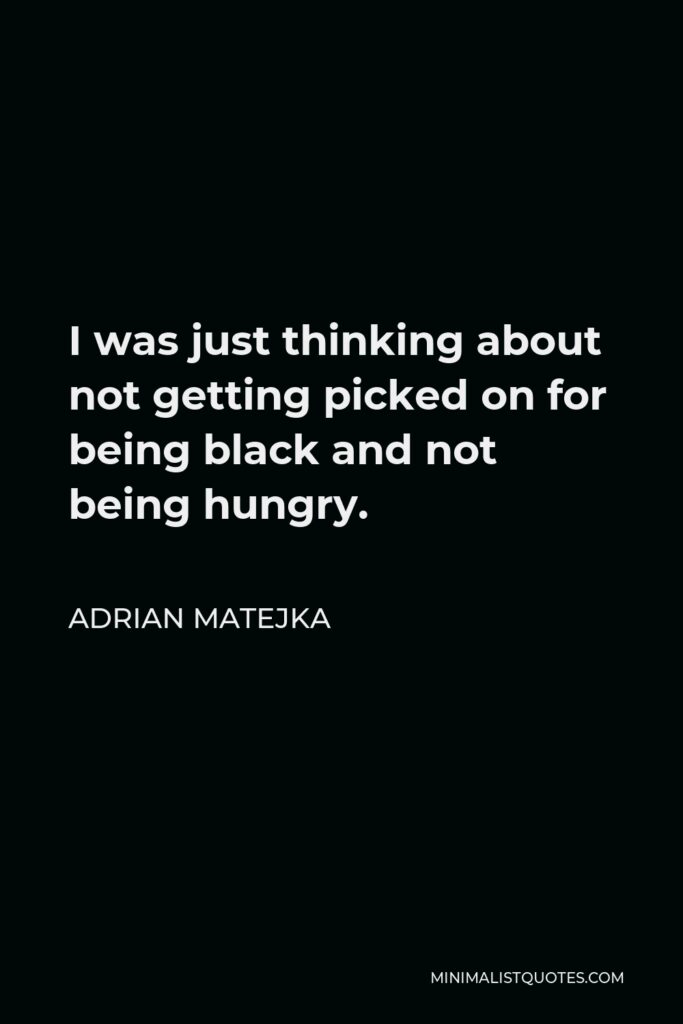

I was just thinking about not getting picked on for being black and not being hungry.
ADRIAN MATEJKA -





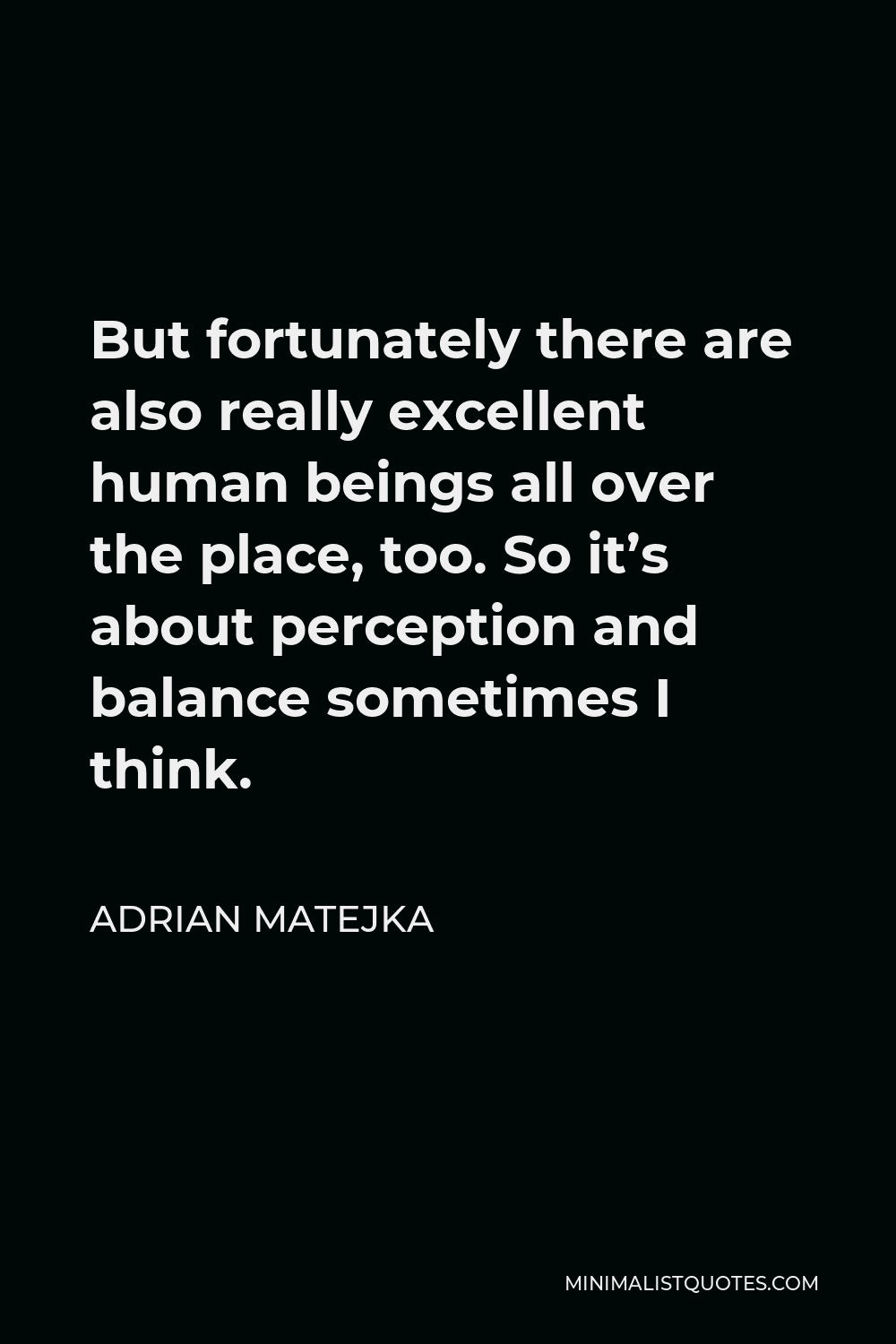
But fortunately there are also really excellent human beings all over the place, too. So it’s about perception and balance sometimes I think.
ADRIAN MATEJKA -





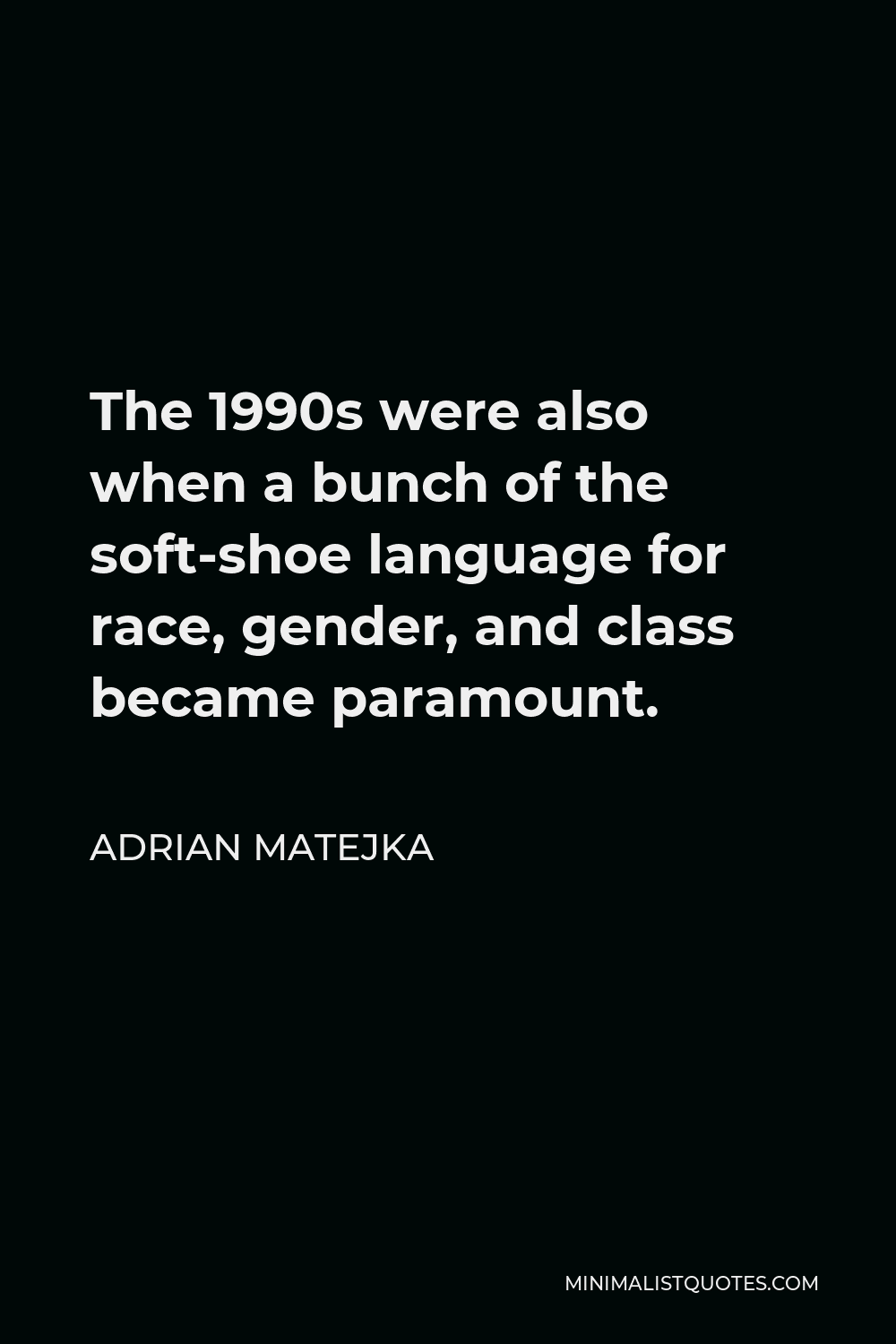
The 1990s were also when a bunch of the soft-shoe language for race, gender, and class became paramount.
ADRIAN MATEJKA -





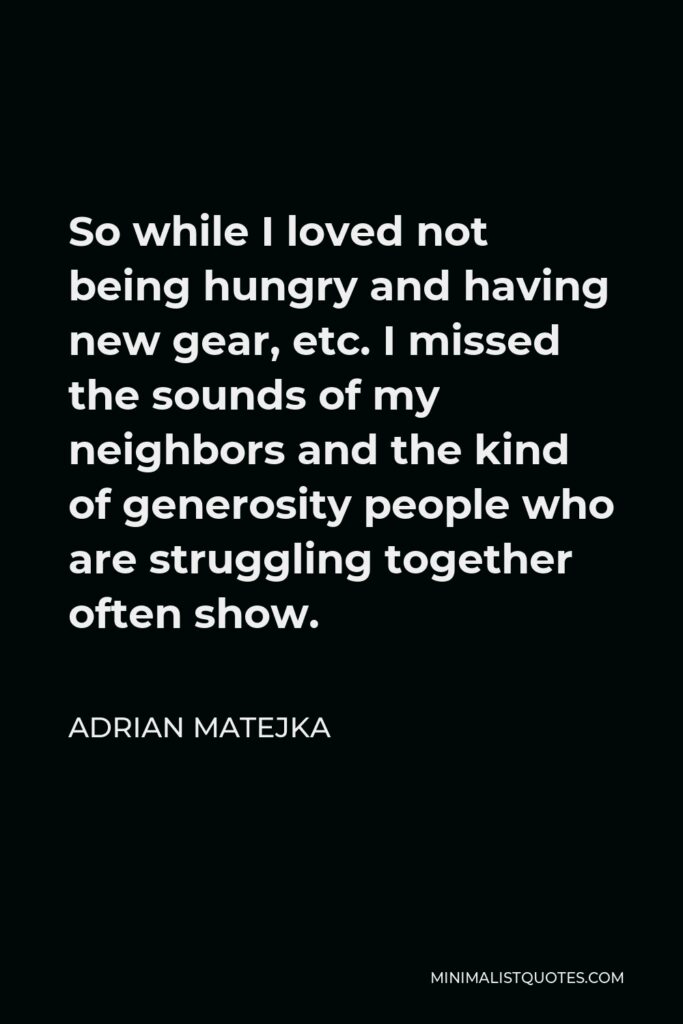

So while I loved not being hungry and having new gear, etc. I missed the sounds of my neighbors and the kind of generosity people who are struggling together often show.
ADRIAN MATEJKA -





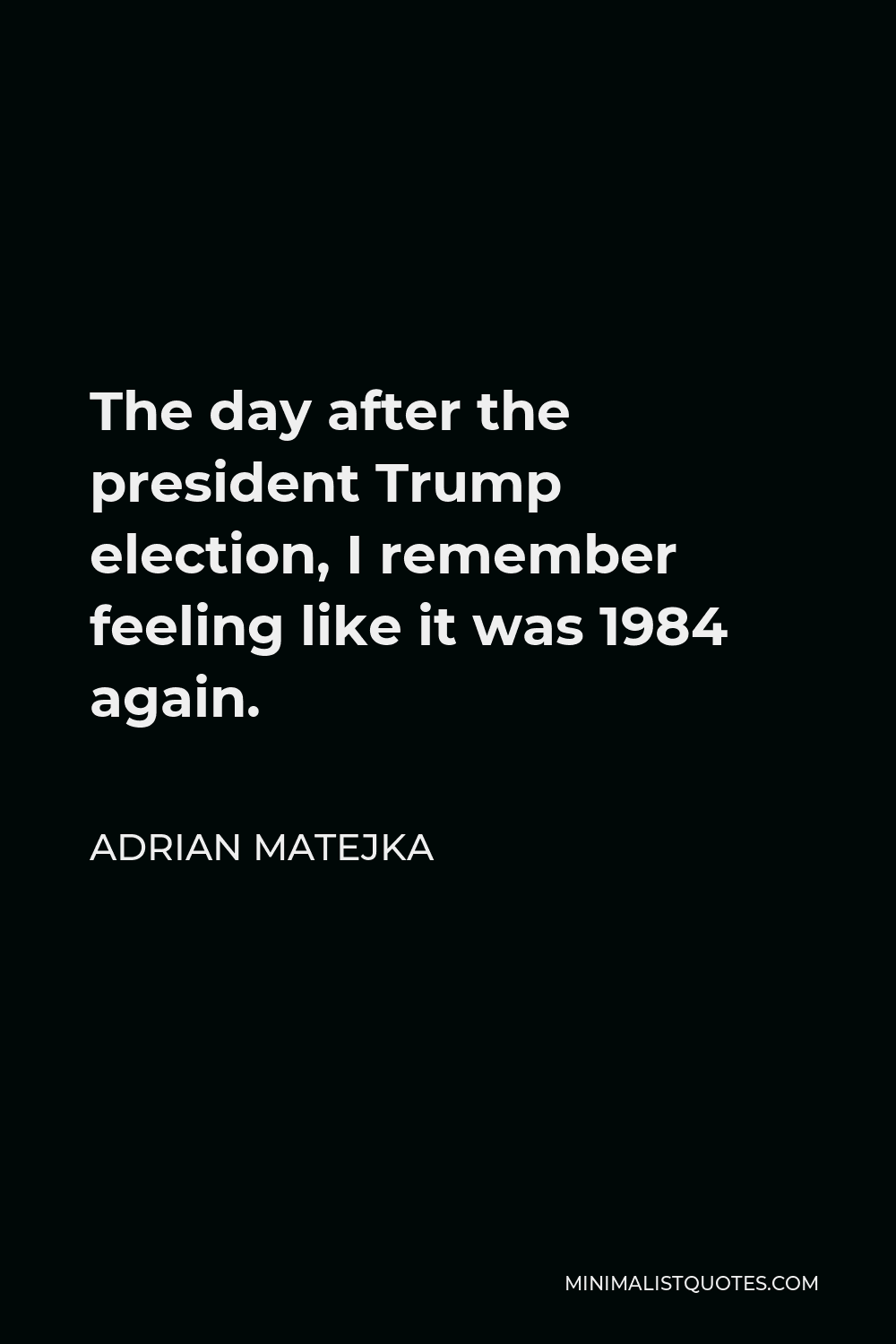
The day after the president Trump election, I remember feeling like it was 1984 again.
ADRIAN MATEJKA -





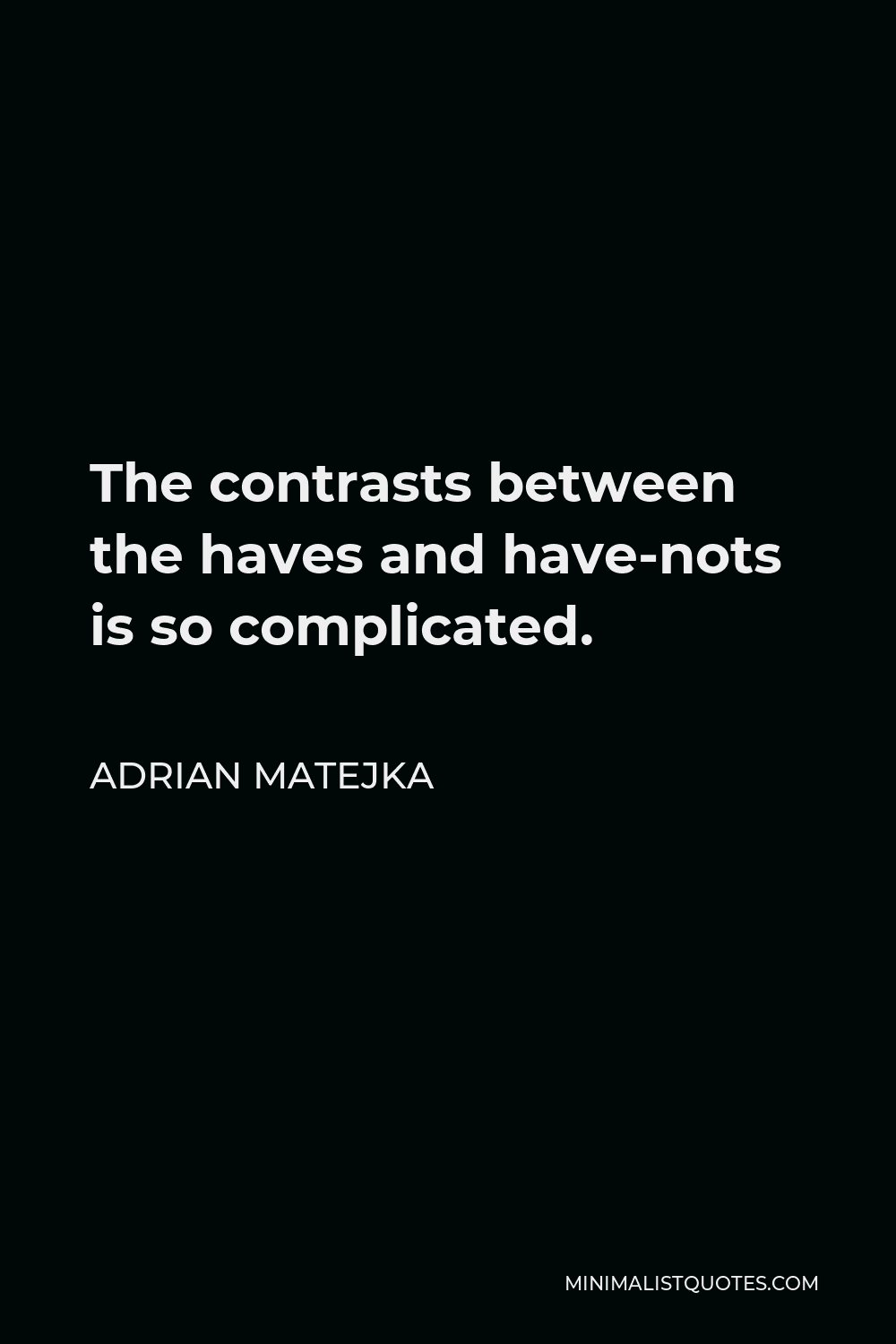
The contrasts between the haves and have-nots is so complicated.
ADRIAN MATEJKA -





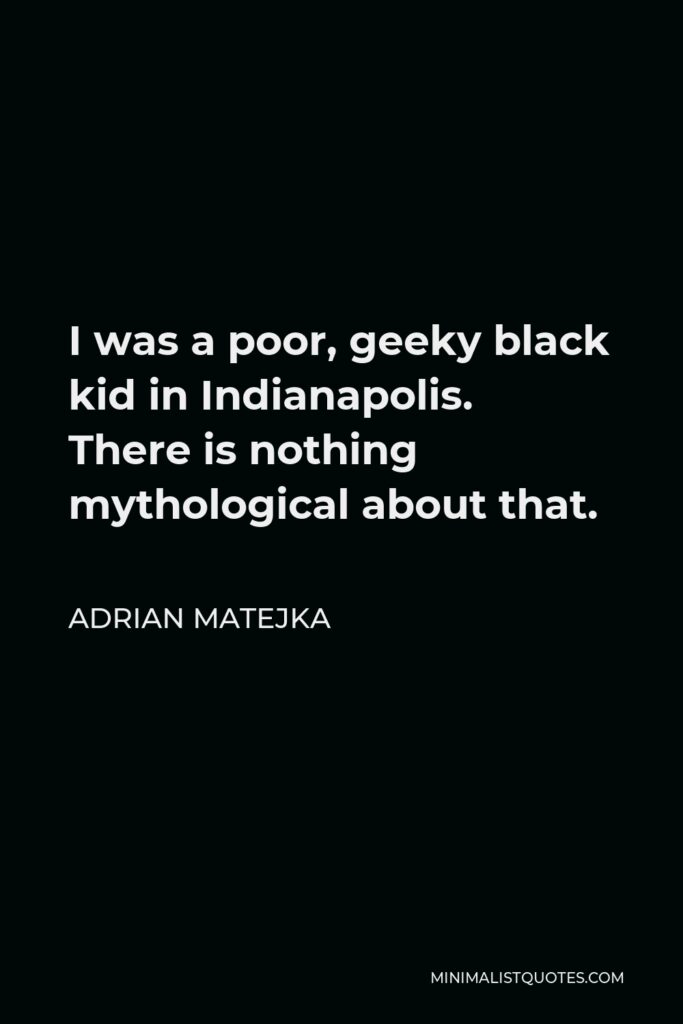

I was a poor, geeky black kid in Indianapolis. There is nothing mythological about that.
ADRIAN MATEJKA -





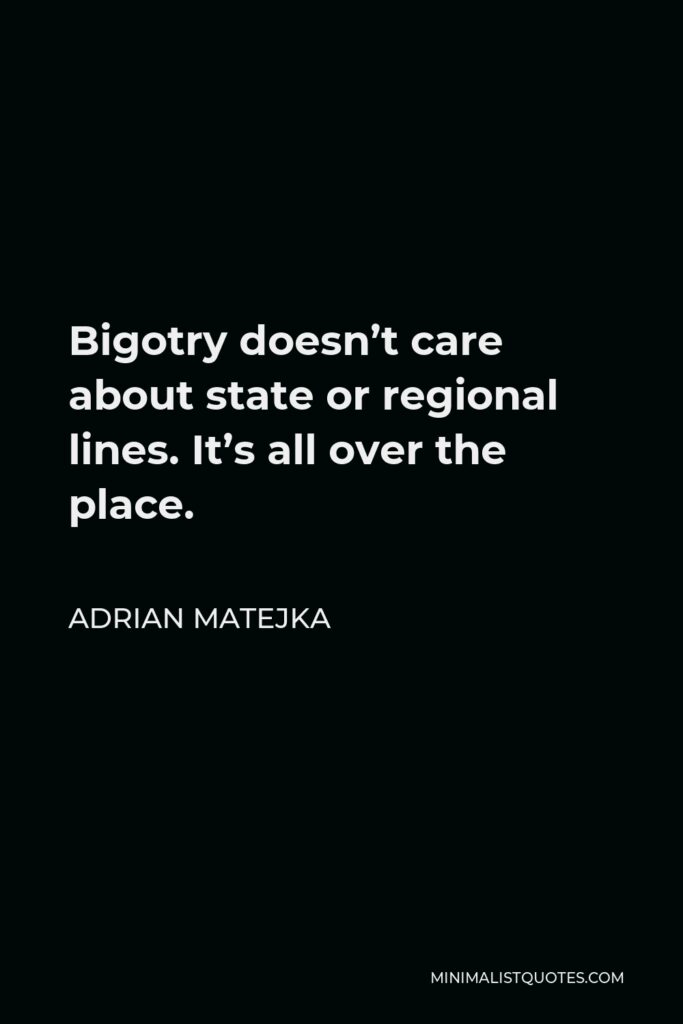

Bigotry doesn’t care about state or regional lines. It’s all over the place.
ADRIAN MATEJKA
